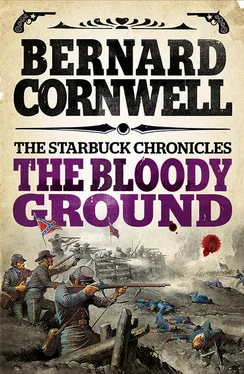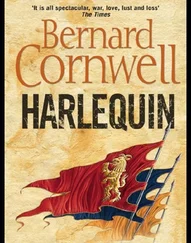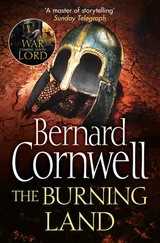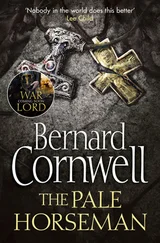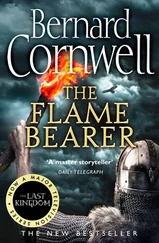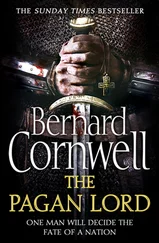Bernard Cornwell
THE BLOODY GROUND
THE NATHANIEL STARBUCK CHRONICLES
BOOK FOUR

Published by HarperCollins Publishers Ltd 1 London Bridge Street London SE1 9GF www.harpercollins.co.uk
This book is a work of fiction. The characters, incidents, and dialogue are drawn from the author’s imagination and are not to be construed as real. Any resemblance to actual events or persons, living or dead, is entirely coincidental.
The right of Bernard Cornwell to be identified as the author of this work has been asserted by him in accordance with the Copyright, Designs and Patents Act 1988
THE BLOODY GROUND. Copyright © 2006 by Bernard Cornwell. All rights reserved under International and Pan-American Copyright Conventions. By payment of the required fees, you have been granted the non-exclusive, non-transferable right to access and read the text of this e-book on-screen. No part of this text may be reproduced, transmitted, down-loaded, decompiled, reverse engineered, or stored in or introduced into any information storage and retrieval system, in any form or by any means, whether electronic or mechanical, now known or hereinafter invented, without the express written permission of HarperCollins e-books.
EPub Edition © JULY 2009 ISBN: 9780007339501
10 9 8 7 6 5 4 3 2 1
Version: 2017-05-08
Praise for Bernard Cornwell’s
THE NATHANIEL STARBUCK CHRONICLES
“The most entertaining military historical novels…. Always based on fact, always interesting…always entertaining.”
—Kirkus Reviews
“[A] wonderful series…believable, three-dimensional characters…a rollicking treat for Cornwell’s many fans.”
—Publishers Weekly
“Highly successful.”
—The Times (London)
“Fast-paced and exciting…. Cornwell—and Starbuck—don’t disappoint.”
—Birmingham News
“A top-class read by a master of historical drama. Nate Starbuck is on the march, and on his way to fame.”
—Irish Press
For Zachary Arnold, may he
never know the horrors of war
Cover Page
Title Page Bernard Cornwell THE BLOODY GROUND THE NATHANIEL STARBUCK CHRONICLES BOOK FOUR
COPYRIGHT
PRAISE
Dedication For Zachary Arnold, may he never know the horrors of war
MAP
PART ONE
I TRAINED. IT HAD RAINED ALL DAY. AT FIRST IT HAD BEEN
LUCIFER WAS NOT HAPPY. “RICHMOND,” HE TOLD STARBUCK
YOU DON’T SOUND LIKE A SOUTHERNER, POTTER,” CAPTAIN
LIEUTENANT-COLONEL SWYNYARD STOOD AT THE RIVER’S
ADAM FAULCONER HAD RARELY FELT SO USELESS
STARBUCK NEVER DID LEARN THE COLONEL’S NAME. HE
IT WAS PROBABLY THE WORST DAY OF DELANEY’S LIFE. AT
ADAM FAULCONER HAD ONCE OPPOSED THE WAR.
THE NORTHERN ARMY GROPED CAUTIOUSLY INTO THE
PART TWO
THE CREEK WELLED FROM A MOSSY SPRING IN A LOW
IT’S REAL COFFEE,” LUCIFER SAID, SHAKING STARBUCK AWAKE
BILLY BLYTHE RECKONED HE HAD MISCALCULATED. HE HAD
GENERAL JOHN HOOD’S DIVISION BURST OUT OF THE
SEVENTY-NINE MEN, SIR,” STARBUCK REPORTED TO
TWO NAPOLEONS WERE FETCHED TO THE SUMMIT OF
HISTORICAL NOTE
ABOUT THE AUTHOR
OTHER BOOKS BY BERNARD CORNWELL
ABOUT THE PUBLISHER
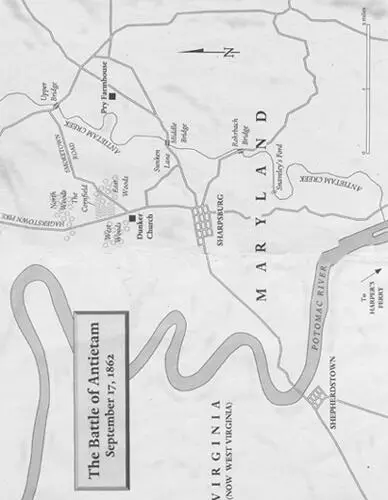
I TRAINED. IT HAD RAINED ALL DAY. AT FIRST IT HAD BEEN a quick, warm rain gusted by fitful southern winds, but in the late afternoon the wind had turned east and the rain became malevolent. It pelted down; a stinging, slashing, heavy rain fit to float an ark. It drummed on the armies’ inadequate tents; it flooded the abandoned Yankee earthworks at Centreville; and it washed the shallow dirt off the grave mounds beside the Bull Run so that an army of fish-white corpses, scarcely a day or two buried, surfaced like the dead on Judgment Day. The Virginia dirt was red, and the water that poured in ever-widening muddy streams toward the Chesapeake Bay took on the color of the soil so that it seemed as if the whole tidewater was being drenched in blood. It was the first day of September 1862. The sun would not set on Washington till thirty-four minutes after six, yet by half past three the gas mantles had been lit in the White House, Pennsylvania Avenue was a foot deep in mud, and the open sewers of Swampoodle were overflowing. In the capitol the rain slashed through the beams and scaffolding of the half-finished dome to pour onto the newly arrived wounded from the North’s defeat at Manassas, who lay in misery on the rotunda’s marble floor.
Twenty miles west of Washington more fugitives from John Pope’s beaten army trudged toward the safety of the capital. Rebels tried to bar their road, but rain turned the confrontation into confusion. Infantrymen huddled for shelter under soaking trees, artillerymen cursed their rain-soaked powder charges, cavalrymen tried to calm horses terrified by the bolts of lightning that raked from the heavy clouds. Major Nathaniel Starbuck, commander of the Faulconer Legion of Swynyard’s Brigade of Jackson’s Corps of the Army of Northern Virginia, was trying to keep a cartridge dry as he poured its powder into his rifle. He tried to protect the cartridge with his hat, but the hat was drenched and the powder that he shook from the wax paper was suspiciously lumpy. He shoved the crumpled paper onto the powder, spat the bullet into the rifle’s muzzle, then rammed the charge hard down. He pulled back the hammer, fished a percussion cap from the box at his belt and fitted it onto the rifle’s cone, then took aim through the silver sheeting of the rain. His regiment was at the edge of a dripping wood, facing north across a rain-beaten cornfield toward another stand of trees where the Yankees sheltered. There was no target in Starbuck’s sights, but he pulled the trigger anyway. The hammer thumped onto the percussion cap that exploded to puff its little wisp of smoke, but the powder in the rifle’s breech obstinately refused to catch the fire. Starbuck swore. He eased back the hammer, prised the shattered percussion cap off the cone, and put another in its place. He tried again, but still the rifle would not fire. “Might as well throw rocks at the bastards,” he said to no one in particular. A rifle fired from the far trees, but the bullet’s passage through the leaves over Starbuck’s head was drowned by the thrashing rain. Starbuck crouched with his useless rifle and wondered what the hell he was supposed to do now.
What he was supposed to do now was cross the cornfield and drive the Yankees out of the farther trees, but the Yankees had at least one regiment and a pair of field guns in that far wood and Starbuck’s combat-shrunken regiment had already been bloodied by those two guns. At first, as the Legion had waded into the tangle of rain-drenched corn stalks, Starbuck had thought the guns’ noise was merely thunder; then he had seen that his left-hand companies were being shredded and broken and he had noticed the Yankee gunners handspiking their weapons about to take the rest of the Legion in the flank. He had ordered his men to fire on the guns, but only a handful of rifles had powder dry enough to fire, and so he had yelled at the survivors to go back before the artillery fired again and then he had listened to the Northerners jeering at his defeated men. Now, twenty minutes later, he was still trying to find a way across or around the cornfield, but the ground to the left was an open space commanded by the enemy guns while the woods to the right were filled with still more Yankees.
Читать дальше
